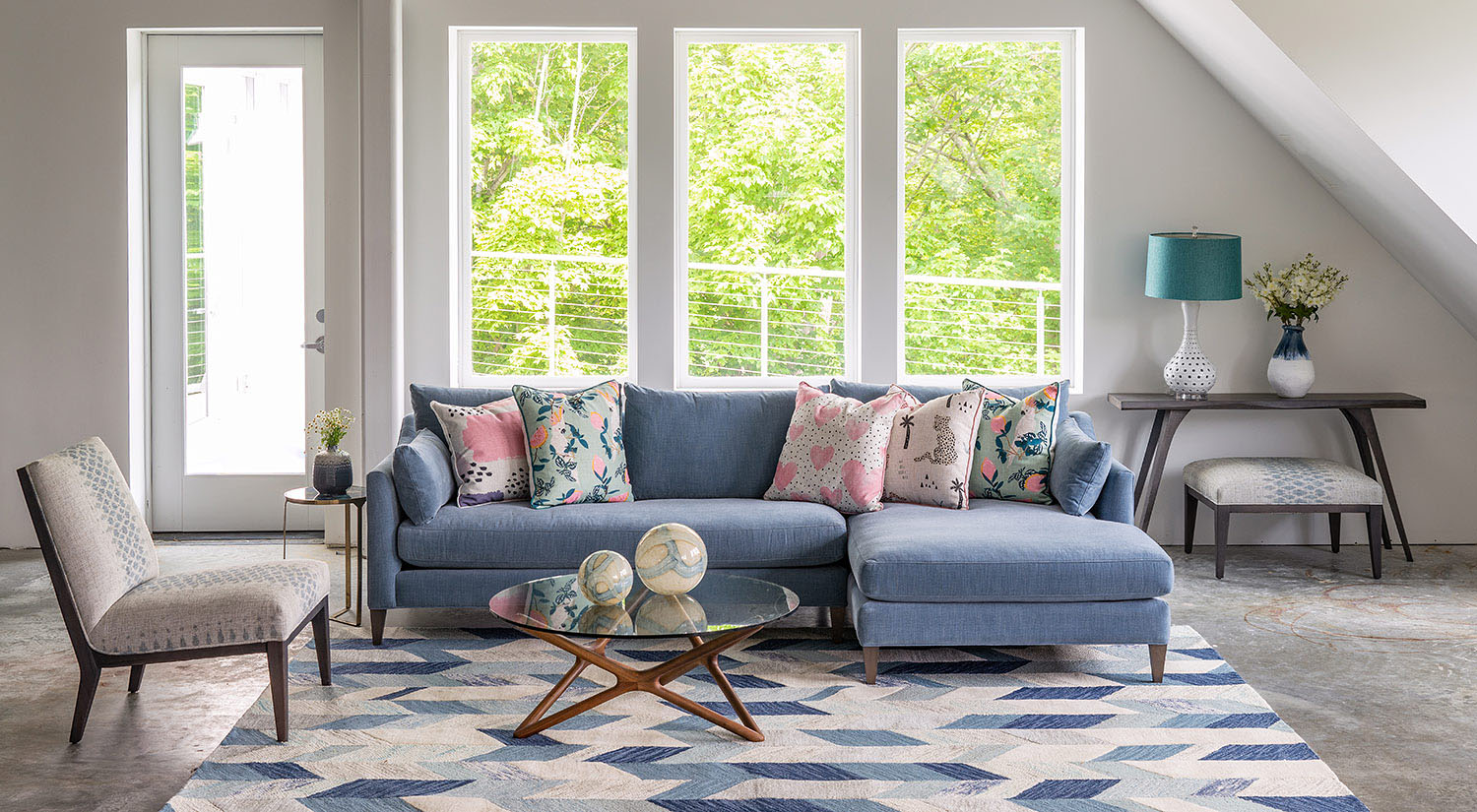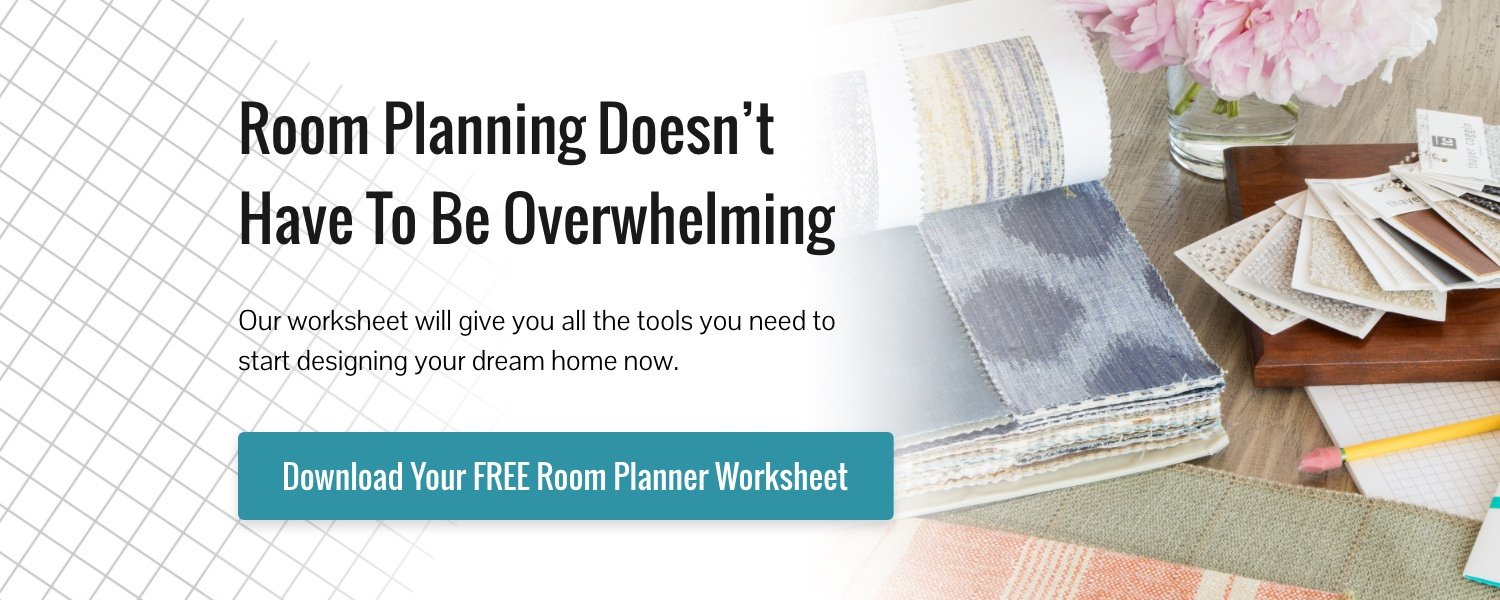Blog
Feng Shui and Interior Design: An Introductory Guide
Interior design is intended to focus on the way we move around our homes, taking into consideration comfort and utility. Once this groundwork is laid, we can couple that with color, textiles, and the visual elements that create an aesthetically pleasing and enjoyable home.
Feng Shui takes this a step further. We spoke with Catherine, our Store Manager in Framingham to learn about the ancient practice and how you can introduce it into your home. This isn’t a comprehensive guide but rather an introduction.
We encourage you to research if it’s of interest to you and, most importantly, to follow your gut when it comes to designing your home. Do what feels right!

What is Feng Shui?
Feng Shui, also known as Chinese Geomancy, is an ancient Chinese philosophy that centers on theories of balance and harmony between energies and elements.
The philosophy asserts that energy has a natural flow that is beneficial to us in our daily life. Without this flow, we won’t enjoy the positive effects of this energy.
Obstacles include clutter, bad placement of furnishings, and objects that just fill space as opposed to items that are either beautiful, highly personal, or that bring us joy.
Catherine says, “Feng Shui is a complex and intensely detailed philosophy on energy and life. It’s important to note that we’re simplifying it to interior design in our corner of the world.”
Most people incorporate elements of Feng Shui into their homes or businesses to create balance, harmony, and abundance.
In Interior Design

When you’re thinking about interior design and Feng Shui, you’re thinking about the placement of your furniture as well as removing obstacles that will get in the way of the circulation of energy (Qi) in your home.
Catherine describes, “Having personalized, important pieces around us and uncluttered space for the free flow of Qi are the key elements of Feng Shui in our homes.”
Here are a few simple tips to consider:
- Display only what’s meaningful and inspirational to you. Clear out your home and keep the objects and items that bring you joy.
- Keep your electronics out of the bedroom as they disrupt energy and sleep.
- Become a plant parent! Plants are meant to bring growth, prosperity, and good luck.
- Pay attention to mirrors because they can stir up or reflect energy. Keep them out of your bedroom or behind a door.
- Consider the position of your home office; the southeast corner of any room is your “wealth corner.”
- Clear out underneath your bed.
Read More: Houseplants 101: Cost, Care, and More
Bagua Areas

The Bagua energy map is a key tool in Feng Shui and denotes eight life areas (like fame, wellbeing, etc.) that correspond with colors and elements. The elements are wood, water, earth, fire, and metal. The Bagua map is created for individuals to design their spaces according to their birth elements.
Catherine explains, “I am ‘wood’ element by birth date and, secondarily, ‘water.’ So the best colors for my elements are green, brown, blue, and black.”
She goes on, “These guidelines seem true to my nature. I already intuitively use these colors in my home. I don’t use fire and metal colors in my home design as I find them agitating. Someone with fire energy would love those colors and get energized by them.”
Find what works for you

At this point, you might be thinking that Feng Shui is a lot more complicated than you thought. Or, you may be itching to learn more. Catherine summarizes her feelings, saying, “Even with a 6,000-year-old philosophy, we find that interior design and what we love to have around us is ultimately an individual consideration.”
There are numerous great resources on the philosophy of Feng Shui, as well as experts who will come into your home and work with you to create a balanced space.
We’re all about taking what works for you and leaving what doesn’t. No harm can be done by taking the time to organize your home, consider your furniture placement, and create more harmony in your home. Find out what element you are and consider the effects that different colors have on you.
At the very least, it will allow you the opportunity to think deeply about your home and work towards creating a space that brings you true happiness.
Discover our 5 tips for a more organized home and come into a showroom to chat with a designer about how you can make the most of your space.
Author:


